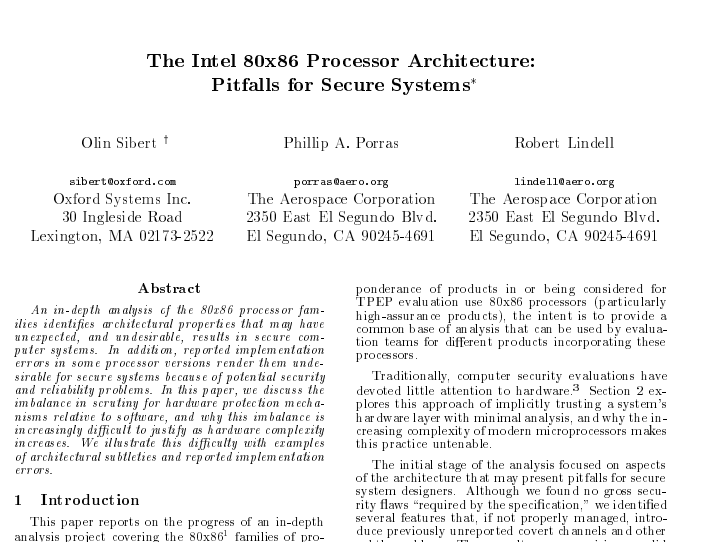 KIT (Karlsruhe Institute of Technology, Institut für Technikfolgenabschätzung und Systemanalyse) has published a great study that I haven’t read completely, but though it’s worth sharing: KIT – ITAS – Research – Project overview – Quattro S: Security, Safety, Sovereignty, Social Product … Especially regarding:
KIT (Karlsruhe Institute of Technology, Institut für Technikfolgenabschätzung und Systemanalyse) has published a great study that I haven’t read completely, but though it’s worth sharing: KIT – ITAS – Research – Project overview – Quattro S: Security, Safety, Sovereignty, Social Product … Especially regarding:
“This project will provide solutions for multiple problems. The first one is the security of information technology. The range of issues addressed includes zero-day exploits (e.g., WannaCry ransomware), denial of service attacks (e.g., Mirai), hardware attacks (e.g. based on the Meltdown and Spectre CPU flaws) up to novel types of hardware Trojans. The possibilities for these attacks originate from weaknesses in the long IT supply chains and threaten the confidentiality, integrity and availability of systems. The second problem is that these attacks can also threaten the safety of products, e.g., in energy infrastructures or in the automotive industry. The third problem consists of a loss of value added because of a migration of production and competences towards competing economies (e.g. US and China). Sovereignty would mean to have full control of the characteristics of information technology, to be sure that no hidden features are implemented, that no business secrets can be stolen, and to benefit economically from such control.“

 Media is going crazy about
Media is going crazy about